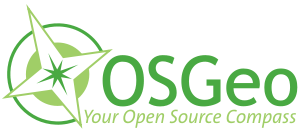Selected Presentations
Home > Presentations > Abstract details
Title
OPENADDRESSES - GEOCODED ADDRESSES WORLDWIDE FREE AND OPEN
Abstract
OpenAddresses is a project that focuses on the collection of free and open geocoded addresses. Starting in 2007, its original goal was to collect all addresses of buildings in Switzerland. Since its re-launch in March 2010 addresses can be collected globally and saved in a central data-repository. OpenAddresses provides its data under the same license conditions as OpenStreetMap. It focuses on the creation and management of a very specialized type of geodata by (re-)using and integrating existing projects on open source data, services and software.
The process of data collection is organised as a collaborative process, also referred to 'volunteered geography’. The basic idea behind the project is that everybody has local spatial expertise. If this knowledge can be collected, organised and provided to the public for free, a global dataset of high value and quality is achieved. OpenAddresses data can be used in various applications of other business fields and foster innovation though the use of geographic information. The spatial resolution of OpenAddresses data is claimed to be higher than those offered by existing free geocoders, as OpenAddresses refers to the exact location of a building and does not use street-geocoding or interpolation as most free geocoders do.Volunteers engage themselves in data collection by either entering familiar addresses via a web-mapping application that OpenAddresses provides at www.openaddresses.org or alternatively by donating already geocoded address data collected by other means, such as GPS, etc. In return, OpenAddresses offers it’s community not solely the data, but value added services based on the collected address data and other open source data and software, such as geocoding and reverse geocoding services or a routing service.The paper introduces the project, its history and functionality and closes with an outlook on its potential but also threads and how it interacts with other open geodata projects.
Authors
Hans-Jörg Stark - FHNW
Cédric Moullet - camp2camp
Stefanie Andrae - FH Kärnten

